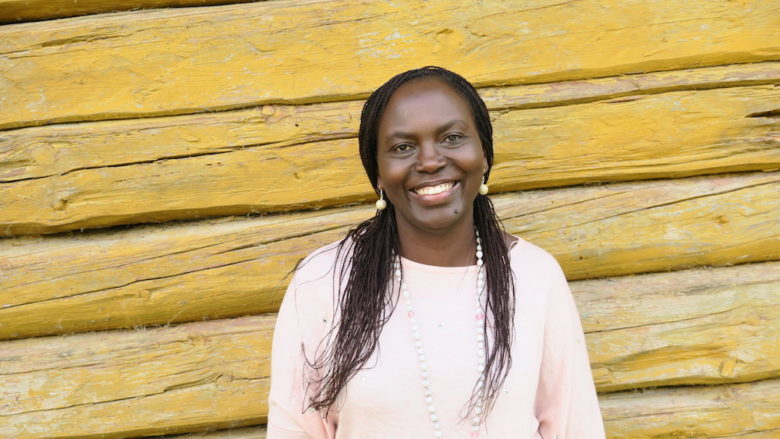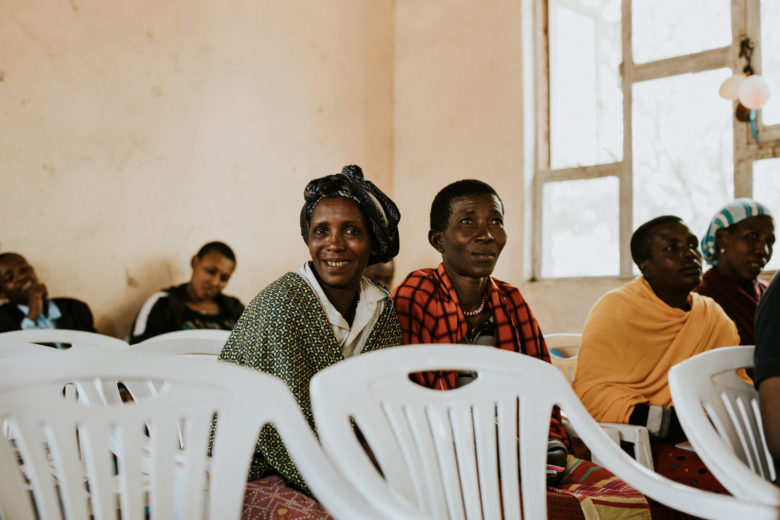Tackling inequality together

The pandemic has particularly affected women
Kenyan Paula Konttinen, who works as Fida’s Regional Development Cooperation Manager for East Africa has seen how the corona pandemic in East Africa has further increased gender inequality. The pandemic threatens the progress made in recent years in many ways.
In Fida’s project areas, girls have reported challenges associated with menstruation. Some girls have even ended up selling sex to get money to buy sanitary napkins.
During the pandemic, it has not been possible to pursue all livelihoods due to drastic closures. Work in the informal sector, such as selling at the market or domestic work may have stopped totally. According to Paula Konttinen, the loss of livelihoods has particularly affected women, as most workers in the informal sector in East Africa are women. Those left unemployed face an immediate risk of poverty.
– The loss of livelihoods also has a real impact on women’s health. Due to financial hardship, they have not had access to sexual and reproductive health services. In Fida’s project areas, the girls have spoken about the challenges related to menstruation in particular: according to reports, some girls have even ended up selling sex to get money to buy sanitary napkins, Paula Konttinen says.
Sexual violence, female genital mutilation and domestic violence have increased during the pandemic. In her work, Paula Konttinen has also noticed an increase in pregnancies and underage girls dropping out of school: although the pandemic restrictions have eased in many places, the girls have not returned to school.
Fida challenges an unequal culture
The UN Sustainable Development Goal 5 aims to achieve gender equality and strengthen the rights and opportunities of women and girls by 2030.
The same goals are a priority in Fida’s development cooperation. Paula Konttinen describes how equality is related to all of Fida’s work in East Africa. The aim is to create a culture of equality in communities.
– We examine the root causes of gender inequality and support women and girls to act as agents of change in achieving equality, Paula Konttinen says.
Women should be represented at every negotiating table that talks about issues that affect women’s lives.
However, a positive change in equality issues cannot be achieved without men. Therefore, the projects encourage men to participate in equality work. For example, menstruation related health projects involve not only women as trainers, but also men – and leaders from village communities and religious communities participate in the trainings.
Together towards an inclusive world
In order to dismantle discriminatory structures, it is important to influence mechanisms that perpetuate inequalities, such as unequal decision-making models. Women make up about half of the world’s population. In the inclusive world, this half is heard.
– Women must be represented at every negotiating table where things that affect women’s lives are discussed, Paula Konttinen emphasizes.
In addition, advocacy towards decision-makers is needed to ensure that women’s rights are taken into account in policy decisions and programs. Fida is therefore working to strengthen the capacity of East African civil society, especially the million-member Pentecostal churches, to work for the rights of women and girls.
Successes in work towards equality
Paula Konttinen gives examples of many successes in work towards equality.
– The discriminated and excluded Batwa community in Burundi is more inclusive today when Batwa women are represented in the decision-making of their community. By participating in community committee meetings, women influence matters that affect the entire community, Paula says.
We can celebrate those communities where menstrual health work has been done. Menstruation and other hygiene issues are no longer a shame or a taboo.
– We also celebrate the results in Loita, southwest Kenya, where the Maasai have adopted an alternative rite- of-passage for girls. As a result, they are giving up female genital mutilation, Paula Konttinen concludes.

Photo: Teppo Haapoja
